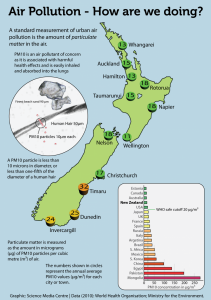Faster-than-light neutrinos don’t replicate
This isn’t in the NZ media yet, but it will probably turn up soon. A second CERN experiment, ICARUS, has repeated the measurement of neutrino speed made by the famous OPERA experiment: the same neutrino source, the same distance, but different measurement equipment. And the neutrinos arrived on-time, not 60ns early. Since the OPERA results violate relativity and have other practical and theoretical problems , it’s not that hard to decide which set of numbers to believe.
As Prof. Matt Strassler says
This is the way it works in science all the time. A first experiment makes a claim that they see a striking and surprising effect. A second experiment tries to verify the effect and instead shows no sign of it. It’s commonplace. Research at the forefront of knowledge is much more difficult than people often realize, and mistakes and flukes happen on a regular basis. When something like this happens, physicists shrug and move on, unruffled and unsurprised.


 Congratulations to one of our department members,
Congratulations to one of our department members, 